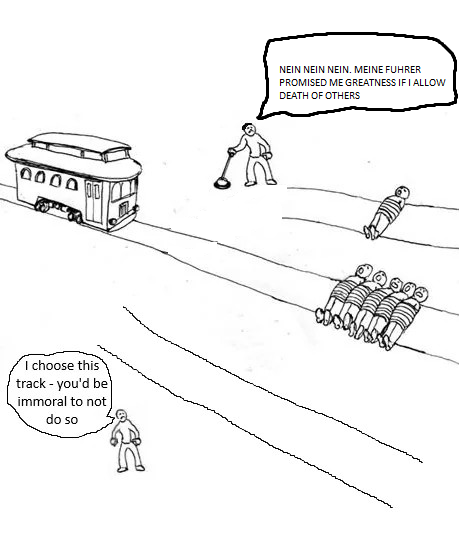this post was submitted on 08 Nov 2024
47 points (100.0% liked)
askchapo
22767 readers
448 users here now
Ask Hexbear is the place to ask and answer ~~thought-provoking~~ questions.
Rules:
-
Posts must ask a question.
-
If the question asked is serious, answer seriously.
-
Questions where you want to learn more about socialism are allowed, but questions in bad faith are not.
-
Try !feedback@hexbear.net if you're having questions about regarding moderation, site policy, the site itself, development, volunteering or the mod team.
founded 4 years ago
MODERATORS
you are viewing a single comment's thread
view the rest of the comments
view the rest of the comments

I thought the point of this was that the meme normally has the other track(s) connected to the middle track, so the fact that they’re disconnected means the lever doesn’t do anything and the system is designed to give a false sense of choice to cover up its murderous intent.
That's how I read it. The tracks have to be connected.
If you are standing with the leaver, the trolley can't change tracks, no matter how much you pull it.
If you're standing at the leaverless track, you don't even have the illusion of control over the situation.
The only moral choice in this image is to get on the moving trolley and try to stop it yourself.
Which is always an option in each one of these trolley images.
Ultimately, the "Trolley Problem" is stupid as a rhetorical device because life isn't binary.
This is how I read it as well.
And still, choosing an empty track doesn't do anything neither other than letting the person on the bottom feel better about themselves. If the guy on the top is a play on the liberal 'choose the lesser evil' sentiment, what is the bottom guy about?
If all 3 tracks are an option, the bottom track not doing anything is the point because the alternative is murder. But I’m saying that in this meme there really is no option other than the middle track because the other 2 aren’t attached.
None of the tracks do anything. It's satire, that's the whole point. It's a critique of electorialism.